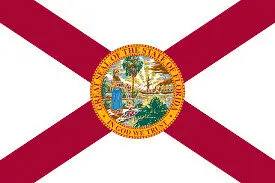Navigating Wealth Transfer in Uncertain Times
High net worth means different things to different people. To an average household, high net worth may be viewed as someone with a few million stashed away. For wealthier households, the perception may be that only the top 1% with assets in the tens of millions are really defined as high net worth (HNW).
When it comes to high net worth estate planning in the context of wealth building and legacy creation, the greater the wealth, the more challenging the planning becomes. This is especially true as we approach the potential 2026 reduction in estate tax exemptions.
In this comprehensive guide, we’ll tackle the reality of high net worth estate planning with life insurance. We’ll first provide an overview of estate planning essentials, then review common challenges and potential solutions using strategic life insurance approaches for high net worth individuals and households.
Estate Planning Essentials for High Net Worth Individuals
The Universal Need for Estate Planning
Contrary to popular misconception, EVERY household needs some estate planning—not just high net worth people. However, the level of damage faced by families due to lack of planning can exponentially increase with greater wealth.
This holds particularly true for the wealthiest households with substantial assets and minimal liquidity. Without proper planning, these families face significant risks:
- Forced liquidation of assets at discounted values
- Excessive probate costs and delays
- Potential family conflicts over inheritance
- Unnecessary tax burdens
Foundation Documents Every HNW Family Needs
Estate planning for everyone starts with certain essential documents:
- Last will and testament
- Durable power of attorney
- Advanced healthcare directives
- Revocable and irrevocable trusts
How these documents are structured and utilized is extremely important. This is why do-it-yourself (DIY) estate planning should be avoided at all costs, especially for high net worth families.
The Critical Role of Trusts
Revocable living trusts are usually a minimal first step toward protecting loved ones from the hassle and expense of probate administration. This is especially important for high net worth households because probate costs rise as a percentage of asset values.
Planning Tip: Probate attorneys love high net worth households without trust planning due to large statutory fees.
Where high net worth households truly separate from the pack is in the use of irrevocable trusts. These powerful planning tools place much greater emphasis on:
- Asset protection from creditors and lawsuits
- Federal estate tax planning and avoidance
- Legacy creation across multiple generations
- Business succession planning
Estate Tax Planning: The 2025-2026 Challenge
Current Estate Tax Landscape
High net worth households are THE only ones under current laws tasked with planning for federal estate taxes. The Tax Cuts and Jobs Act raised the federal estate tax exemption limits to $13.99 million for individuals and $27.98 million for married couples in 2025.
However, this is set to change dramatically. Without congressional action, the exemption could drop to approximately $7 million per individual in 2026 when the current tax provisions sunset. This looming change has driven a large increase in irrevocable life insurance trust (ILIT) adoption for liquidity planning.
State-Level Estate Tax Considerations
Beyond federal taxes, 12 states impose estate taxes with exemptions below $5 million. This has accelerated the use of cross-jurisdictional trust strategies and created additional planning challenges for high net worth families.
The Power of Irrevocable Life Insurance Trusts (ILITs)
Our top 1% continue to benefit greatly from irrevocable trust planning that uses qualified gifting to reduce or limit estate tax exposure. Almost half of HNWIs now use Irrevocable Life Insurance Trusts ILITs to hedge against future tax changes.
Gifting to an irrevocable life insurance trust has been particularly effective because:
- Gifted proceeds are used to purchase life insurance
- The leverage effect multiplies the value of the gifts
- Death benefits remain outside the taxable estate
- Proceeds provide liquidity precisely when needed
8 Life Insurance Strategies for High Net Worth Estates
1. Providing Liquidity and Leverage
Liquidity and financial leverage are two major benefits obtained through using life insurance for high-net-worth estate planning. The cash value in a policy can be accessed with little effort during life if needed.
The liquid death benefit is available from the life insurance company quickly after death. This ensures your trustee and beneficiaries promptly have liquid assets rather than being forced to sell other assets at potentially discounted values.
2. Paying Estate Taxes
When it comes to high net worth estate planning with life insurance, ensuring estate liquidity is often the first priority. Federal estate taxes must be planned for if the estate is projected to exceed the exemption amounts because:
- This tax is due within 9 months of death
- The rate is approximately 40% on assets exceeding the exemption
- Illiquid assets may need to be sold quickly at discounted values
For example, assets held in “B Trusts” due to changes in estate tax laws can be converted to life insurance policies. This preserves an estate-tax-free death benefit while addressing the liquidity challenge.
3. Business Continuity and Succession Planning
Maintaining the continuity of a closely held business is a major focus of estate planning with life insurance for high net worth households. This strategy uses life insurance to fund the buyout of a closely held business.
Generally, a buy-sell agreement funded by life insurance is used for this purpose. Family business succession planning is another aspect of this strategy:
- Death benefit proceeds allow key family members to purchase a deceased member’s interest
- This prevents forced sales to outside parties
- The business continues operating without interruption
- Family legacy remains intact
4. Gifting to Pay Life Insurance Premiums
Qualified gifting means an individual may give a certain amount per beneficiary without incurring a federal gift tax. The federal gift tax annual exclusion has increased to $18,000 per beneficiary in 2025.
Where gifting interrelates to life insurance for high net worth households:
- Annual exclusion gifts to an irrevocable trust can purchase life insurance
- Multiple beneficiaries can multiply the total annual gifting capacity
- The life insurance death benefit will NOT be included in the taxable estate
- The leverage effect multiplies the value of these gifts substantially
5. Funding Irrevocable Trusts
The power of using gifted proceeds to purchase life insurance has been so popular that the coined term “irrevocable life insurance trust” (ILIT) has become standard in the industry. Recent data shows growing adoption since 2023.
One strategy particularly common with high net worth households is using a second-to-die life insurance policy to fund an ILIT. This planning is effective when:
- The surviving spouse will have no need for the death benefit proceeds
- Estate taxes are only due after the second spouse’s death
- Premium costs are lower for survivorship policies
- The death benefit can be structured to match projected estate tax liability
ILITs are often used to hold life insurance for high net worth households as a way to provide estate liquidity AND also provide dynasty trust planning for future generations.
6. Premium Financing
Ultra-high net worth individuals are more likely to make use of life insurance premium financing. The logic behind this strategy is straightforward: why pay for the life insurance if you can leverage someone else’s money (OPM), thereby increasing your rate of return?
Recent data shows ultra-high-net-worth (UHNW) estates leverage premium financing for policies exceeding $10M in coverage, though interest rates (5–8%) and collateral risks remain challenges. Key considerations include:
- Lenders typically require 125% loan-to-value ratios for collateral
- Interest rate fluctuations can affect long-term performance
- Exit strategies must be carefully planned
- Appropriate for policies with premiums exceeding $250,000 annually
Premium financing is generally reserved for ultra-high net worth households due to the approval requirements and amount of cash-value life insurance involved.
7. 1035 Exchanges for Life Insurance
High net worth estate planning may require using strategies such as the 1035 exchange for life insurance due to:
- Potentially high cash values that have accumulated
- The need to ensure policies are performing optimally after many years
- Changing health conditions that may improve underwriting
- New product features that might better serve planning goals
A 1035 exchange allows for the tax-free transfer of cash values between policies, making it a powerful tool for optimizing existing insurance assets.
8. Long-Term Care Insurance Integration
Long-term care life insurance hybrid policies provide both death benefit coverage and insurance for long-term care expenses. The advantage of these asset-based long-term care insurance policies is you get both benefits in one.
New data shows 15% of insurers now offer LTC/life insurance combos to address aging HNW demographics. These hybrid policies solve several problems simultaneously:
- Providing a death benefit if long-term care isn’t needed
- Offering accessible funds for care if required
- Protecting assets from spend-down requirements
- Creating a more efficient use of premium dollars
6 Types of Permanent Life Insurance Policies for High Net Worth Planning
1. Dividend-Paying Whole Life Insurance
Whole life insurance is a time-tested conservative life insurance asset that offers:
- Minimum guaranteed return on cash value accumulation
- Tax-deferred growth within the policy
- Access to cash value via policy loans
- Predictable premium payments
When structured properly, these policies can provide both death benefit protection and competitive cash value growth.
2. Universal Life Insurance
Universal life comes in several variations depending upon your risk tolerance and goals:
- Flexible premium payments
- Adjustable death benefits
- Transparency in cost structure
- Various investment approaches based on the specific type
This flexibility makes universal life adaptable to changing financial situations.
3. Variable Life Insurance
Variable life insurance is designed for high net worth individuals with higher risk tolerance who wish to take advantage of market returns. Key features include:
- Investment options similar to mutual funds
- Potential for higher returns than traditional policies
- Greater risk exposure
- Professional money management
This type of policy works best for those comfortable with market fluctuations.
4. Guaranteed Universal Life
On the opposite end of the spectrum, guaranteed universal life is mostly used to:
- Secure a permanent death benefit at lower cost than whole life
- Provide minimal cash value accumulation
- Create premium certainty
- Focus primarily on the death benefit component
For those focused primarily on estate liquidity, this can be an efficient solution.
5. Indexed Universal Life Insurance
Indexed universal life offers a middle ground approach with:
- Market-based returns tied to indexes like the S&P 500
- Downside protection through minimum guarantees
- Upside potential capped at predetermined levels
- Balance between growth opportunity and risk management
This “best of both worlds” approach has gained popularity among moderate-risk investors.
6. Private Placement Life Insurance
Private placement life insurance is another strategy similar to variable life but with added flexibility reserved for accredited investors. Setup costs range from $50,000–$200,000, but PPLI adoption has risen 18% since 2023 due to:
- Tax-efficient global asset management
- Access to alternative investments like hedge funds
- Significant tax advantages
- Higher investment minimums but lower insurance costs
Case Study: Preserving a $30M Business Legacy
Client Profile
- 58-year-old tech CEO with $30M net worth
- $22M in illiquid business equity
- $8M in real estate and other assets
- Three children with varying interest in the business
Challenges
- Projected estate tax liability: $6.8M (40% federal rate on assets exceeding exemption)
- Business succession conflict between heirs
- No liquidity for taxes without forced asset sales
- Concerns about 2026 exemption reduction
Solution Implemented
- ILIT with Second-to-Die Policy:
- $15M survivorship policy funded via $450k annual premiums
- Death benefit structured to cover estate taxes, preserving business equity
- Premium Financing Arrangement:
- Lender covered 80% of premiums ($360k/year) at 6% interest rate
- Collateralized by investment portfolio
- Annual gifts to ILIT covered loan interest
- Business Succession Plan:
- Buy-sell agreement funded by separate key person policies
- Clear valuation methodology established
- Specific roles defined for each heir
Outcome
- $6.8M tax liability fully covered by tax-free death benefit
- Business preserved intact for children who wanted to continue
- Equitable distribution to children not interested in the business
- Heirs avoided a 20% valuation discount from rushed business sale
Frequently Asked Questions
How much life insurance do high net worth individuals need for estate planning?
The amount depends on your specific situation, but typically should cover:
- Projected estate tax liability (40% of assets exceeding exemption)
- Funds for business buyouts or equalization
- Debt repayment
- Income replacement if needed
A detailed analysis with your trusted advisor and insurance specialist is essential to determine the precise amount.
What happens to my estate plan if the tax laws change in 2026?
Without congressional action, the estate tax exemption will likely drop to approximately $7 million per person in 2026. This could significantly increase tax exposure for estates between $7-30 million. Flexible planning using tools like:
- Irrevocable Life Insurance Trusts (ILITs)
- Spousal Lifetime Access Trusts (SLATs)
- Installment sales to Intentionally Defective Grantor Trusts (IDGTs)
These approaches can provide options regardless of how tax laws evolve.
Can I access the cash value in my life insurance policy if needed?
Yes, permanent life insurance policies build cash value that can be accessed through:
- Policy loans (not taxable as income)
- Partial surrenders
- Full surrenders (potentially taxable)
The specific access methods and tax implications vary by policy type. Premium financing arrangements may restrict access until loans are repaid.
How do I know if premium financing is right for my situation?
Premium financing works best when:
- You need substantial life insurance coverage ($10M+)
- You have significant assets but prefer not to liquidate them
- You have assets that can serve as collateral
- You understand and can manage the interest rate risks
- Your health qualifies you for preferred insurance rates
Work with advisors experienced in both insurance and lending to evaluate this strategy.
What’s the difference between an ILIT and other types of irrevocable trusts?
An Irrevocable Life Insurance Trust (ILIT) is specifically designed to:
- Own and be the beneficiary of life insurance policies
- Remove insurance proceeds from your taxable estate
- Provide liquidity for estate taxes and other expenses
- Distribute assets according to your wishes
Unlike other irrevocable trusts, ILITs have special provisions for insurance ownership, premium payments through gifts, and Crummey powers to qualify gifts for the annual exclusion.
Conclusion: Taking Action on Your Estate Plan
High net worth estate planning with life insurance requires strategic implementation of various techniques tailored to your specific situation. As the 2026 tax changes approach, the importance of proactive planning has never been greater.
The strategies outlined in this article provide powerful tools for:
- Minimizing estate tax exposure
- Creating liquidity for tax payments
- Ensuring business continuity
- Establishing multi-generational wealth transfer
We recommend many of these strategies to our HNW clients, along with other advanced high net worth life insurance planning approaches. Your estate plan should be reviewed annually, especially with the upcoming tax law changes on the horizon.
Ready to Protect Your Legacy?
Schedule your complimentary Legacy Preservation Audit today. Our team specializes in high net worth estate planning with life insurance and can help you implement the strategies that best align with your wealth transfer goals.
Don’t leave your legacy to chance—especially with potential tax law changes approaching. Contact us today to ensure your estate plan provides maximum protection for your loved ones and preserves the wealth you’ve worked so hard to build.





